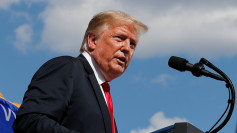Paramount Global announced a significant leadership change, revealing that CEO Bob Bakish will step down, effective immediately, amid ongoing merger negotiations and a strategic corporate overhaul. Bakish, who has been a pivotal figure in the company's evolution since 1997, will also relinquish his board position as the company transitions to a new leadership structure dubbed the "Office of the CEO."
This new leadership framework will be shared by a trio of executives: Brian Robbins, President & CEO of Paramount Pictures & Nickelodeon; George Cheeks, President-CEO of CBS; and Chris McCarthy, President & CEO of Showtime/MTV Entertainment Studios and Paramount Media Networks. Together, they will collaborate closely with Paramount CFO Naveen Chopra and the board to steer the company through its next phase of growth and operational refinement.
The restructuring comes at a critical time for Paramount, as the company engages in advanced merger discussions with Skydance Media. Reports suggest that Skydance CEO David Ellison could potentially lead Paramount if the merger proceeds. This deal, still under negotiation, involves complex valuations of Skydance's assets and considerations on equity contributions.
Paramount's strategic pivot aims to accelerate growth, develop popular content, materially streamline operations, strengthen the balance sheet, and optimize its streaming strategy, amidst the broader backdrop of an uncertain media industry. Shari Redstone, Chair of the Paramount Board, expressed strong confidence in the capabilities of the newly formed Office of the CEO, underscoring their proven track record within the company.
Bob Bakish's tenure saw significant achievements, including the launch of Paramount+ and the acquisition of Pluto TV. However, his recent opposition to the proposed Skydance merger put him at odds with Redstone, who has been considering a sale of her controlling stake in Paramount to Skydance's private equity backers. This disagreement appears to have influenced the timing of his departure, coinciding with pivotal earnings announcements and ongoing carriage negotiations with Charter Communications.
The leadership change reflects broader shifts within the company and the industry. Paramount is currently navigating substantial financial pressures, exacerbated by streaming losses and a steady decline in linear television viewership. These challenges have led to missed opportunities in selling off assets like Showtime and BET, further complicating the financial landscape.
Amid these strategic shifts, Paramount remains a publicly traded entity with two classes of stock, a structure that allows the Redstone family to maintain control while holding a minority of the total equity. This arrangement has sparked discontent among other shareholders, particularly in light of the merger talks, which some see as favoring the interests of the Redstone family over the broader investor base.
As Paramount approaches a key carriage deal expiration with Charter Communications, the industry watches closely. The outcome of these negotiations and the potential merger could significantly reshape Paramount's operational and financial strategies moving forward.






